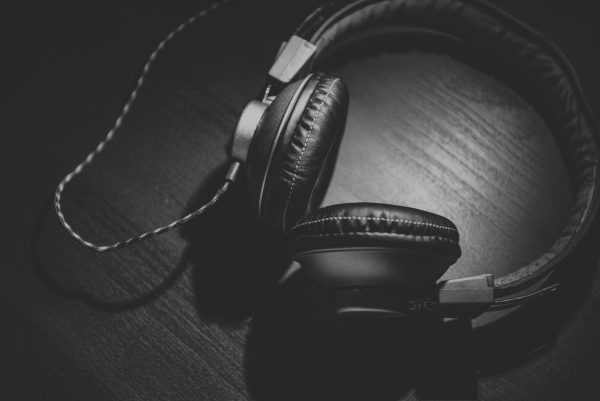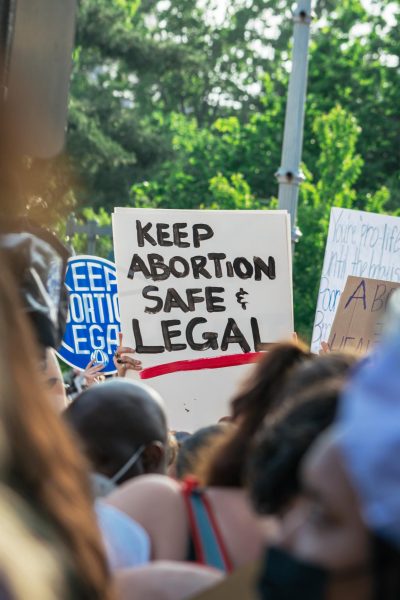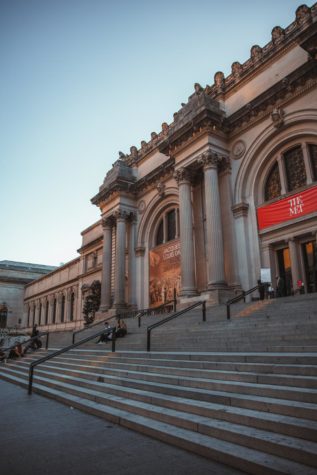The Hunted
March 10, 2014
By Stephanie Chen, Op-Ed Editor
The Sochi Olympics have ended just recently, and with it the world’s focus on Russia. The fact that the 2014 Winter Olympics was to take place in Russia caused much public outcry and criticism—one was the newly constructed Olympics buildings in Sochi, which had dysfunctional toilets, missing walls, and yellow water, to say the least. The other problem, however, was more severe; the treatment of homosexual people in Russia. Many LGBT athletes and spectators worried about their safety by attending the Olympics. Their worries seemed to be in vain; overall, the Olympics carried on smoothly in terms of athletes’ safety. But now, while the world’s attention turns to Ukraine, the Russian public’s attitude toward homosexual people remains the same: hostile, and growing more so.
Recently, a British documentary, “Hunted”, has been unveiled regarding the true situation of the LGBT community in Russia at this time. Although the objectivity of the documentary can be questioned, some of the graphic scenes it contains are truly disturbing. At one point in the documentary, we see a group, “Occupy Pedophilia”, lure a homosexual man into their apartment by pretending that they are a gay man wanting to meet. They beat and humiliate him, while videotaping him for the entire world to see. This man’s reputation and livelihood has now been ruined, and it’s clear that besides the short-term effects of the beating, he will find it difficult to be accepted into his society.
Although the LGBT community has faced difficulties around the globe, including the US, it has become gradually more and more accepted through the past few years. Monumental legislation has been passed, legalizing gay marriage in many states. Around the world, the LGBT community holds rallies and parades. This is not so in Russia. If anything, Russia seems to be retreating from modern social viewpoints on homosexuality into viewpoints akin to the Middle Ages.
In the late 20th century, Russia seemed well on its way on the path to LGBT acceptance. In 1993, sex between consenting adult couples of the same gender was legalized, transsexuals were able to change their legal gender since 1997, homosexuality was declassified as a mental illness in 1999, and the age of consent became the same as heterosexual couples in 2003 (1). Still, that was the farthest Russia got in regards to tolerating the LGBT community. Now, the vast majority of Russians are against legalizing gay marriage and support laws that discriminate against homosexuals.
But what caused this trend to occur? Simply put, it seems that the government has no intention of protecting LGBT rights. Indeed, it may have reason for putting homosexual people under the fury of the public. One woman, who does not want to be named, says, “The Russian economy is becoming worse…there are many problems that the government doesn’t want the people to pay attention to. So, instead, they are making gays the target of hate. And the people are taking the bait.”
In June 2013, the federal government passed an amendment to a child protection law, which banned the distribution of materials relating to so-called “non-traditional” sexual relationships among minors. One group this affects is teachers: one such teacher in the documentary continues to educate children besides the law. She says that she cannot withdraw support to many troubled kids because of the law, although she acknowledges the danger this puts her in. But by doing this, she takes an enormous risk—she could be sent to jail, or even targeted by extremist groups such as “Occupy Pedophilia”. In the documentary, the anonymous cameraman has infiltrated this group, and while talking to Katerina, the leader of the group, learns that this teacher is one of the next targets.
Because Russia’s own government has taken a stance against the LGBT community, the public feels justified to act violently against the community. Extremist groups aren’t considered crazy; they’re considered crusaders, heroes for the community. When they shoot a gay man, they’re not murderers, but heroes for a righteous cause: protecting the children. Indeed, one of the most disturbing aspects of the entire campaign is the supposed correlation between homosexuality and pedophilia. In Russia, they’re seen as the same thing. Katerina, the leader of “Occupy Pedophilia”, says with a sly smile, “Yes, we are an organization to catch pedophiles. But isn’t it strange that out of thirty times, twenty nine times we catch a gay pedophile?”
With both the government and public against them, the LGBT community has little choice but to keep a low profile and hope that they’re not the next targets against violence. They know that there is no police coming to help them if they ever get assaulted. They are not even allowed to display pro-LGBT symbols in public, or hand out flyers to raise awareness. Indeed, within the documentary, a LGBT group knows that they can’t stand together on the street; otherwise, they’ll be arrested. So, they stand hundreds of yards apart, but to no avail. A police officer comes later, tells them that what they’re doing is illegal, and disbanding the effort.
But the LGBT community knows that no police will ever break up the groups catcalling at them when they have gatherings. No police will arrest the people handing out party bags with notes such as “Kill yourself” inside to people who show up at the gatherings. A man who was beaten up and shot during an attack on a gay community center in St. Petersburg in November, says, “It’s like a hunting season. And we are the hunted.”
1. Russia: Update to RUS13194 of 16 February 1993 on the treatment of homosexuals”. Immigration and Refugee Board of Canada. 29 February 2000. Retrieved 10 March 2014.












